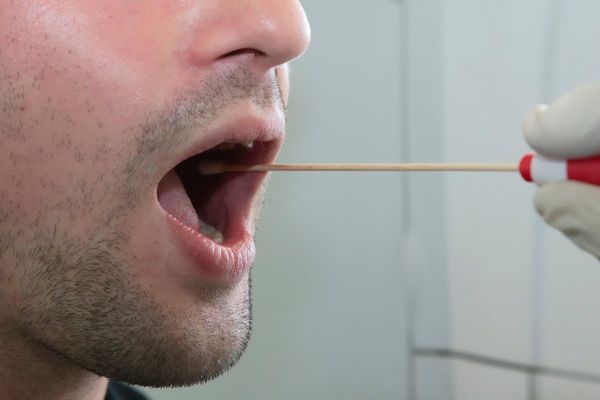
WEYMOUTH, UK—Twenty or so small boats, slung with orange floats and lobster pots and bearing banners reading “SAVE BRITAIN’S FISH” and “COASTAL COMMUNITIES COUNT,” chugged out of the harbor into the bay. The flotilla set off rockets and flares, and orange and white smoke billowed out over the English Channel. The unusual episode—part protest, part distress call—was replicated in port towns across Britain in April 2018. “You get pushed that far, you’ve got to do something,” Dave Pitman, 65, a third-generation trawlerman who took part in the demonstration, said in an interview this August.
At issue was the Common Fisheries Policy (CFP), a European Union agreement that gives European boats access to British waters and which, critics claim, has decimated the U.K.’s fishing industry. The country remains in the CFP while it negotiates its exit from the EU, which Fishing for Leave spokesman Arron Banks said in a statement at the time gives Europe the opportunity “to cull what’s left of the UK fleet.” He added, “Brexit creates a golden opportunity to regain 70 per cent of the UK’s fisheries resources and rejuvenate a multi-billion pound industry for the nation.”
Two years on—and four years since the country voted to leave the EU—such demands threaten to derail the painstaking negotiations to determine what relationship Britain, currently in a transition period, will have with the EU once it becomes fully independent on Dec. 31. Both sides have indicated a need to finalize a comprehensive trade deal in October, although discussions have stalled for months, with competition rules and the status of Northern Ireland proving particularly controversial.
But experts suggest that the U.K.’s efforts to carve out a better deal for its fishing fleet—and the EU’s steely defense of the status quo—could be the issue that sees talks stumble at the last hurdle. This would lead to a painful no-deal scenario, in which the country loses tariff-free access to the destination of 43 percent of its exports and practical, diplomatic, and security cooperation is thrown into uncertainty. This August, the European Parliament threatened the United Kingdom with economic sanctions should it try to block European fishermen from Britain’s waters, which extend up to 200 nautical miles into the Atlantic Ocean and the North Sea. In an Oct. 2 phone call with Ursula von der Leyen, the European Commission president, British Prime Minister Boris Johnson emphasized the importance of fisheries to the U.K. Both sides agreed to intensify talks on remaining issues, especially fishing, ahead of a pivotal EU summit on Oct. 15-16, with Johnson saying the U.K. did not want a no-deal Brexit but could “more than live with it.”
“This stand-off has the potential to derail the entire talks,” concluded a report published this June by The UK in a Changing Europe, a British think tank. “Absurd though it may seem, as the formal Brexit process reaches its endgame, fisheries might yet be the issue that determines whether the negotiations succeed or fail.”
The CFP was set up in the 1970s to help sustainably manage stocks of the dozens of species that move between the waters of European nations. Overall catch limits are set every year by EU ministers. But each country’s share of individual species was fixed four decades ago based on historical fishing patterns.
This rigid allowance has increasingly disadvantaged the United Kingdom: European trawlers land around 700,000 metric tons of fish from British waters annually, compared with under 100,000 metric tons in the other direction. Meanwhile, the British fishing fleet of nearly 6,000 vessels has had trouble adapting to changing fish stocks and competing with large fishing companies that monopolize lucrative fishing grounds.
“Weymouth, compared to what it was like 20 years ago, is quite a small fishing port now,” said Pitman, who has fished out of this small town in southwestern England for five decades. “A lot of the reason why it declined here is because of the quota system.” By the time migrating shoals—of Dover soles, for example—come within reach of Weymouth’s smaller craft, bigger boats belonging to both the U.K. and Europe have already taken the lion’s share, he argues.
The strict licensing system that limits catches to a handful of species makes turning a profit difficult, agreed Bob Summerhayes, 57, who nets bass, mullet, and pollock off Weymouth. “We don’t have the range to go up and down the Channel into other areas chasing fish,” he explained. “Pigeonholing vessels into selective fishing doesn’t really suit inshore, small-scale fishermen. We need that ability to diversify.” Supertrawlers hurt artisanal fishermen on both sides of the Channel, he added, by depleting stocks of fish further down the food chain and inadvertently scooping up larger fish such as bass, which often have to be thrown away due to catch limits.
Four out of every 5 British fishing vessels are 10 meters long or under. But the U.K. currently gives this low-range, inshore fleet less than 2 percent of the country’s available quota, according to a recent report from the New Economics Foundation. This could have been remedied even within the EU. But many hope that in the process of bringing fishing policy back in-house, the U.K. will seize the chance to give its smaller fishermen a break—perhaps through awarding access to fish stocks based on days at sea. A post-Brexit Fisheries Bill currently working its way through Parliament places some restrictions on larger vessels, but the opposition Labour Party argues it could do much more to help smaller fishermen.
The difficulties facing Britain’s fishermen are clear. But less immediately obvious is why their government is prepared to potentially risk the most important negotiation in modern British history on getting them a better deal. Catching fish makes up just 0.1 percent of the British economy and employs barely 12,000 people, or 0.04% of the British workforce. Even combined with the fish-processing sector, roughly twice as big, the industry remains minnow-sized compared to the U.K.’s creative arts or financial services sectors.
Part of the answer is that Britain’s fishing fleet is concentrated in small coastal towns, often already economically deprived, and their fishermen often find it hard to retire or retrain. Once a beach resort frequented by King George III, Weymouth and the surrounding area came last out of 533 English districts in terms of social mobility in a 2018 report by the U.K. Parliament.
Like Weymouth, many fishing communities voted for Brexit in 2016 and are represented by Conservative members of Parliament “who don’t want to see any giving in on the fishing issue,” said Christopher Huggins, a senior lecturer in politics at the University of Suffolk and lead author of the report on Brexit and fishing. “The government can’t ignore it all that easily.” Similarly, the fishing industries of Denmark, the Netherlands, and France want the EU to fight tooth and nail to protect their access to U.K. waters, he added. “There’s politics on both sides of the channel.”
But perhaps the biggest spur to Prime Minister Boris Johnson’s unlikely fishing offensive is Britain’s stubborn pride in having once “ruled the waves.” “Fishing is seen as the litmus test of Brexit,” Huggins explains. “It is a complicated issue but to most people it seems relatively simple. You either have control of what’s going on in your waters or you don’t.”
If no deal is reached by the end of the transition, the UK in a Changing Europe report concluded, the risk grows of British and EU fishermen clashing over access to fish. Even if trade talks fall apart for unrelated reasons —such as shared rules around state subsidies for industry—animosities could play out at sea. Some experts put the chances of no deal as high as 50-50.
Disputes over fishing have heated up before: the “Cod Wars” from 1958 to 1976 saw Icelandic fishermen shoot at British trawlers and cut their nets, and Royal Navy escort ships ram Icelandic Coast Guard vessels. In August 2018, French fishermen threw petrol bombs and rocks at British boats off Normandy in an ongoing quarrel over scallops. The United Kingdom is reportedly tripling the size of its Fishery Protection Squadron, a Royal Navy detachment which guards the country’s fish stocks. Sanctions would not be without precedent either. In 2013, the EU closed its ports to fishing vessels from the Faroe Islands—a tiny North Atlantic archipelago—for overfishing.
To avoid souring relations with an important trading and security partner, the EU may relent on the fishing issue. Some sort of reworked quota system boosting Britain’s share of the fish in its own waters, but offering EU fishermen a transitional period, seems likely. Even without an immediate deal, under the U.N. Convention on the Law of the Sea, Britain will still have to cooperate with its neighbors to manage fish stocks sustainably. “I don’t think we’re going to see any big bang,” said Huggins.
When it comes to fish, too, the EU has strong leverage. Britons barely eat any fish other than salmon, cod, shrimp, tuna, and haddock, so 80 percent of British fish landings are exported—mostly to the EU, which will probably make tariff-free access to its markets conditional on its fishermen still being allowed into British waters. Among Weymouth’s most lucrative catches are crab, lobster, and whelks, and “the bigger shellfish markets tend to be Europe: France, Spain, and Portugal,” Summerhayes admitted. “If there isn’t a deal it’s going to be difficult.”
Even if the United Kingdom can claw back some concessions, fishing will probably remain the work of a tough few. Many fancy their chances in the industry after a few sunny days at sea, said Pitman. “It’s a total different effect when you’re blown a five or six southwesterly, it’s pissing it down, and you’re waking up in the dark on a cold winter’s morning. You’ve got to be half-mad.”
“But going to work in an office? Nah. As long as I can pass the medical, I’ll keep going.”







